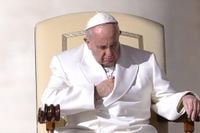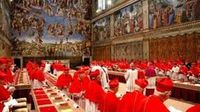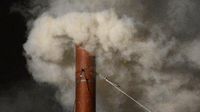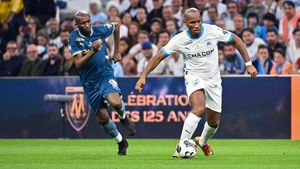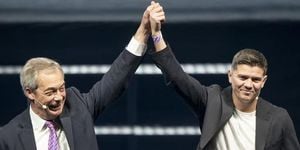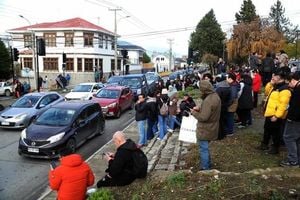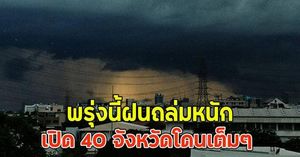The Vatican is bracing for a pivotal moment as it prepares for the conclave set to begin on May 7, 2025, following the death of Pope Francis on April 21. The passing of the 88-year-old pontiff has left a significant void, prompting the College of Cardinals to gather for a series of meetings to discuss the future leadership of the Catholic Church.
In the lead-up to the conclave, the cardinals have been actively engaging in discussions about pressing issues, particularly the financial challenges facing the Holy See. During the seventh general congregation, held recently, 181 cardinals participated, with 124 being eligible to vote. Vatican spokesman Matteo Bruni indicated that the discussions centered around the "problems" and "challenges" of Vatican finances, with key interventions from Cardinals Reinhard Marx, Kevin Joseph Farrell, and Christoph Schoenborn. They highlighted the urgent need for reforms to address the declining donations to the Church.
The financial situation of the Vatican is precarious, with the 2023 operating deficit reported to be 83 million euros, an increase of five million euros from the previous year. This deficit is expected to grow as donations from the faithful continue to dwindle. Pope Francis had previously urged the cardinals in a letter dated September 20, 2024, to support reforms aimed at reducing this deficit and managing resources more effectively.
As the cardinals prepare for the conclave, they are also reflecting on the spiritual significance of this moment. On April 30, the College of Cardinals issued a call to all Catholic faithful to intensify their prayers in anticipation of the new pope's election. They emphasized that this process should be viewed as a "grace-filled event" guided by the Holy Spirit.
The conclave itself will take place in the Sistine Chapel, a setting steeped in tradition and history. A chimney has been installed atop the chapel to signal the outcome of the voting—black smoke will indicate no pope has been elected, while white smoke will announce the election of a new pontiff. The cardinals will cast their votes in four rounds each day, with the aim of reaching a two-thirds majority.
Among the candidates for the papacy, several prominent figures have emerged. Cardinal Peter Turkson from Ghana is seen as a strong contender, potentially making history as the first African pope. With a background in social justice and development, his candidacy reflects the growing influence of the African Catholic community.
Another notable candidate is Cardinal Pietro Parolin, the current Secretary of State of the Vatican. Known for his moderate stance, Parolin has been a key figure in diplomatic efforts and is viewed as a stabilizing force within the Church.
In contrast, Cardinal Raymond Leo Burke represents a more traditionalist viewpoint, having publicly opposed some of Pope Francis's more liberal policies. His candidacy highlights the ongoing tensions within the Church regarding issues such as divorce and same-sex relationships.
As the conclave approaches, the atmosphere is charged with anticipation. The cardinals, aged between 45 and 80, will gather in the Sistine Chapel, where they will engage in secret balloting until a consensus is reached. The average age of the electors is around 72, with a diverse representation from across the globe, including 71 different countries.
In addition to the political and financial discussions, the cardinals are also grappling with the legacy of Pope Francis and the direction the Church should take moving forward. His emphasis on social justice, environmental issues, and inclusivity has left a profound impact on the Church's identity.
As the world watches, the upcoming conclave not only represents a pivotal moment for the Catholic Church but also reflects broader societal changes and challenges. The election of the next pope will undoubtedly shape the Church's response to contemporary issues, including the ongoing scandal of sexual abuse that has plagued the institution.
In the wake of Pope Francis's death, the Church faces a critical juncture. With the cardinals preparing to elect a new leader, they must navigate the complexities of modernity while remaining true to the core values of their faith. The outcome of the conclave will resonate far beyond the walls of the Vatican, influencing millions of Catholics around the world.
As the conclave date draws near, the call for prayer and reflection resonates strongly among the faithful. The cardinals are not merely political figures; they are spiritual leaders tasked with guiding the Church through turbulent waters. The decisions made in the Sistine Chapel will have lasting implications for the future of Catholicism.
This moment in history underscores the importance of unity, discernment, and faith as the Church seeks to move forward under new leadership. The cardinals, armed with their diverse perspectives and experiences, are poised to make a decision that will shape the Church for generations to come.
In the days leading up to the conclave, the world will hold its breath, waiting for the white smoke to signal the dawn of a new papacy. The legacy of Pope Francis will undoubtedly influence the discussions, but the cardinals must also chart a new course that reflects the evolving needs of the global Catholic community.
